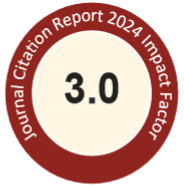Abstract
One of the major problems in the use Chinese herbal medicinal (CM) products is product safety. Alarm has been heightened internationally in recent years on the contamination of CM products by heavy metals or toxic contaminants such as pesticide residues. In this study, the levels of several representative toxic elements including lead (Pb), arsenic (As), mercury (Hg) and cadmium (Cd), and the contents of several common organochlorine pesticides in Lingzhi (Ganoderma lucidum) samples purchased commercially in China and Southeast Asia were determined. Of the 36 samples analyzed, the As in about one third, and Cd in more than one half of the samples were found to contain metal concentrations exceeding their respective allowable limits in China and the U.S. Pesticides are less of a problem. Among 7 of the 36 samples randomly selected, none of them was contaminated with pesticides exceeding the allowable limit. The metal results suggest that the quality and safety of CM products have to be critically assessed before the products can be put in clinical trials or placed on the market. Both GAP and GMP guidelines are strongly recommended to ensure the production of quality and contamination-free CM products.
Recommended Citation
Wong, T.C.; Lee, F.S.-C.; Hu, G.L.; Chang, L.; Wang, X.; and Fu, P.P.
(2007)
"A survey of heavy metal and organochlorine pesticide contaminations in commercial Lingzhi products,"
Journal of Food and Drug Analysis: Vol. 15
:
Iss.
4
, Article 16.
Available at: https://doi.org/10.38212/2224-6614.2401

